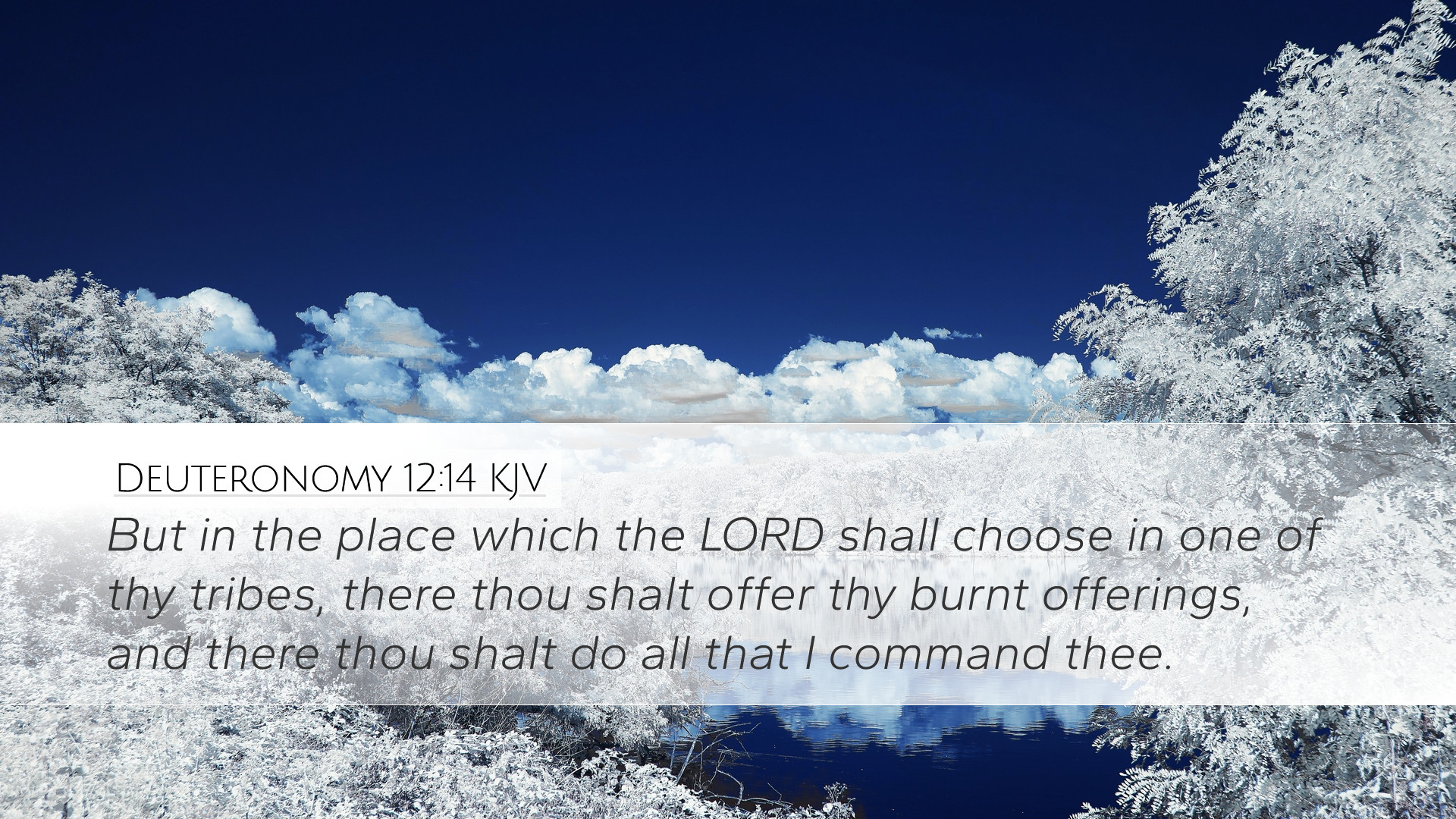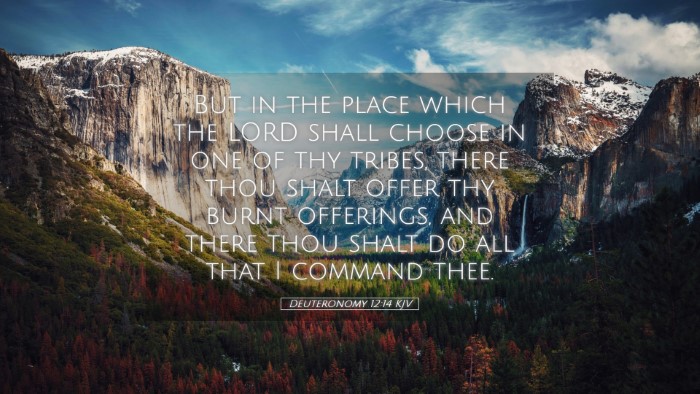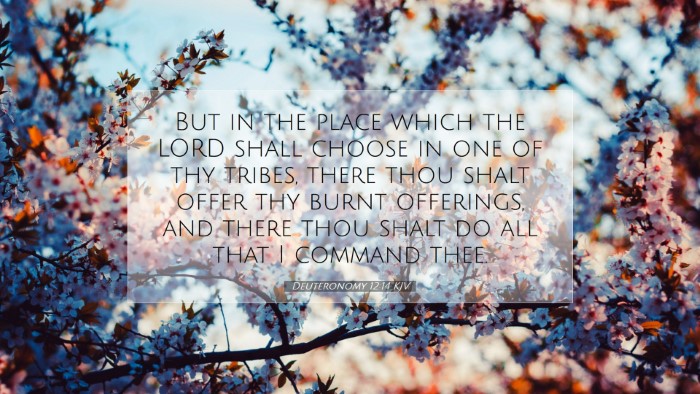Commentary on Deuteronomy 12:14
Bible Verse: "But in the place which the LORD shall choose in one of thy tribes, there thou shalt offer thy burnt offerings, and there thou shalt do all that I command thee." (Deuteronomy 12:14)
Introduction
This verse is part of a larger discourse in Deuteronomy regarding the proper worship of God, emphasizing the importance of centralized worship as decreed by the Lord. It offers rich theological implications for understanding God’s covenant with Israel and reveals principles valuable to those in pastoral and scholarly pursuits.
Textual Analysis
The verse under consideration introduces a divine command concerning where sacrifices and offerings are to be made. The phrase "the place which the LORD shall choose" points to a divine selection process, signifying that worship is to occur only in designated locations established by God. This theme can be further explored through various commentaries.
Matthew Henry’s Commentary
Matthew Henry emphasizes that this verse illustrates God's desire for an orderly worship system. He notes that the choice of a specific place is significant as it reflects God’s sovereignty and guidance over His people. The centralization of worship is meant to unify the nation and prevent the dilution of religious practices through personal altars.
- Divine Choice: Henry highlights that the place of worship must be divinely appointed and not merely chosen by humans.
- Unity in Worship: The author notes that a central place of worship fosters community and collective acknowledgment of God’s supremacy.
- Obedience in Worship: The call to do all that God commands indicates that obedience is requisite in worship practices.
Albert Barnes’ Notes
Albert Barnes provides a detailed explanation of the contextual implications behind this verse. He argues that this command underscores the importance of adhering to God’s established order in matters of worship. He asserts the necessity of following divine regulations rather than individual interpretations or innovations.
- Specificity of Worship: Barnes stresses that God's commandments provide clarity regarding acceptable forms of worship.
- Prevention of Idolatry: He cautions that decentralized worship can lead to idolatry and syncretism, contaminating the purity of worship.
- Comprehensive Obedience: He reiterates the command to follow all God's statutes, showcasing the holistic nature of divine law in worship.
Adam Clarke's Commentary
Adam Clarke offers insights into the socio-religious context of Israel’s worship practices. He elaborates on the sociopolitical ramifications of centralized worship, integrating reverence for the divine with communal identity.
- Cultural Significance: Clarke discusses how establishing a single site for worship reinforces national identity among the Israelites.
- Worship as a Collective Act: He posits that worship must involve the community, emphasizing that spiritual practices are not mere individual exercises but collectively significant.
- Context of Commandments: Echoing the theme of divine law, he reminds the reader that worship is deeply connected to ethical and moral living as prescribed by God.
Theological Implications
The implications of this command extend beyond ancient Israel into contemporary theological discourse. God’s exclusive claim over worship anticipates Jesus’ teachings regarding the true nature of worship in spirit and truth (John 4:24).
- God’s Sovereignty: This verse affirms the Lord’s authority to choose how and where He is to be worshiped, which carries implications for modern worship practices.
- Importance of Community: The focus on communal worship underscores the importance of ecclesiology and the church’s role in worship today.
- Continuity of Scripture: The command to obey all God has commanded in the context of worship suggests a continuity of God’s will from the Old to the New Testament.
Practical Applications
For pastors, theologians, and biblical scholars, the implications in Deuteronomy 12:14 emphasize the need for intentionality in worship.
- Guidance in Worship Leadership: Pastors are urged to seek God’s direction in worship practices, ensuring they align with biblical standards.
- Encouragement of Corporate Worship: This verse serves as a reminder of the significance of gathering as a community to worship God collectively.
- Exploration of Holistic Obedience: Scholars might explore what it means to obey God in comprehensive terms, examining how worship intersects with daily life and ethical behaviors.
Conclusion
Deuteronomy 12:14 invites serious reflection on the nature of worship and the importance of adhering to God’s directives. Through insights from esteemed commentators like Matthew Henry, Albert Barnes, and Adam Clarke, one can grasp the rich theological and practical dimensions of this verse. Ultimately, it calls believers to recognize the significance of divine authority, communal worship, and the necessity of obedience in all expressions of faith.


